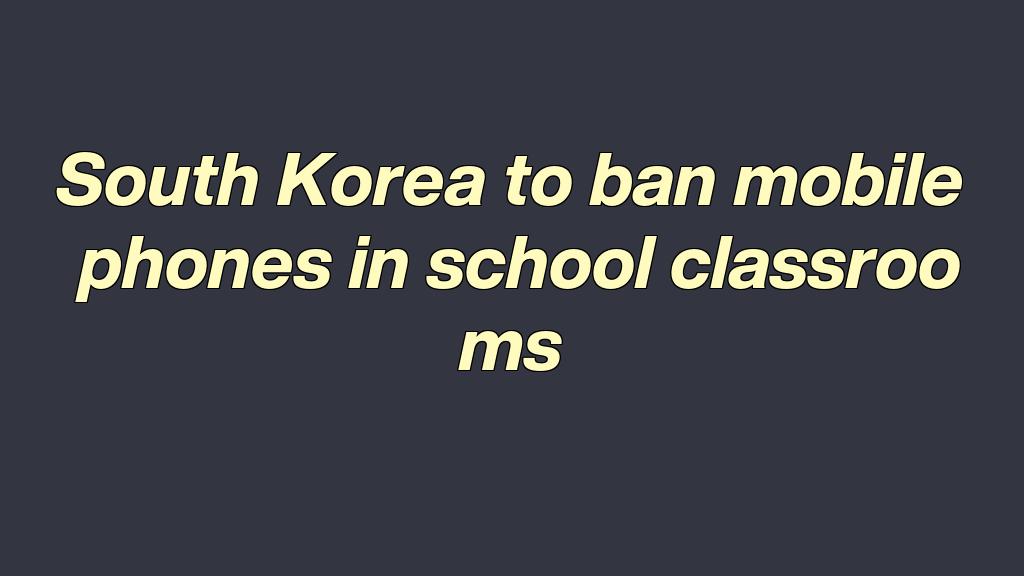SEOUL — South Korea has passed a bill banning the use of mobile phones in school classrooms nationwide, officials said on Thursday, joining other countries in efforts to curb social media use among minors.
One of the world’s most wired nations, South Korea has sought to tighten rules on electronic devices in schools, citing concerns over smartphone addiction among students.
The bill, which will take effect in March 2026, bans smart devices, including mobile phones, in classrooms and was passed on Wednesday, a National Assembly spokeswoman told Agence France-Presse (AFP).
The move makes South Korea the latest country to restrict social media use among schoolchildren, following similar steps in countries that include Australia and the Netherlands.
Seoul’s Education Ministry said in a statement that the law banned the use of smartphones in classrooms except when needed as assistive tools for students with disabilities or special education needs, or for educational purposes., This news data comes from:http://tfy.erlvyiwan.com
South Korea to ban mobile phones in school classrooms
The measure also establishes a legal basis to “restrict the possession and use of such devices to protect students’ right to learn and support teachers’ activities,” it added.

Lawmakers, including opposition People Power Party member Cho Jung-hun, who introduced the bill, said the issue had long been “contentious amid concerns over human rights violations.”
But the country’s National Human Rights Commission recently changed its stance, saying limits on phone use for educational purposes do not breach rights given their negative impact on students’ learning and emotional wellbeing.
South Korea to ban mobile phones in school classrooms
Against this backdrop, the law was needed to ease social conflict “by clearly defining rules on smart device use in schools,” the lawmakers said in a document introducing the bill.
But it has drawn backlash from groups, including the left-wing Jinbo Party, which said the law would “infringe on students’ digital rights and right to education.”
The measure “prevents adolescents from learning to make responsible decisions on their own and deprives them of opportunities to adapt to the digital environment,” the party said in a statement.
- UN food agency chief says women and children are starving in Gaza and pressed Netanyahu on aid
- NKorea could produce ten to twenty nukes per year — SKorea leader
- Venezuela builds up border security over US warships
- PH has chance of getting UNSC seat - Manalo
- Social media erupts: Politicians' children face backlash for flaunting wealth
- House resumes budget briefings
- No winner in lotto draws for Aug 28
- UN force in Lebanon slams Israeli drone attack on peacekeepers
- Rains over Metro Manila, parts of PH as LPA may develop into 'short-lived' tropical depression
- Private groups back DHSUD chief's anti-corruption policy